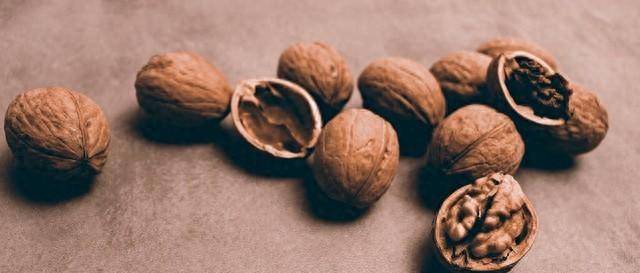As the saying goes, “Winter nourishment makes one strong as a tiger next year.” Winter, as the golden period for health preservation, is particularly important for the health of the kidneys. The maintenance of the kidneys is closely related to the abundance of yang energy. Today, I want to share with you an ideal winter dietary therapy product – walnuts. Walnuts not only effectively nourish the kidney yang but also moisten the lungs. In winter, whether added to daily cooking, brewed into delicious porridge, or used as a convenient snack, walnuts are an excellent choice.
Medicinal Value of Walnuts
Walnuts, as a nutritious nut, are not only delicious but also have various medicinal values. They have a mild nature and sweet taste, acting on the lungs, kidneys, and large intestine meridians in the human body, providing the functions of nourishing the kidneys, warming the lungs, and moistening the intestines.
In traditional Chinese medicine, the medicinal value of walnuts is highly valued. Mentions in “Bu Yang Fang” highlight that walnuts can enhance appetite, promote blood circulation, and make the skin and muscles more delicate. “Kai Bao Ben Cao” also records various benefits of walnuts, such as promoting health, moisturizing the skin, darkening hair and beards, positive effects on the urinary system, treating hemorrhoids. Li Shizhen emphasizes the efficacy of walnuts in enhancing physical strength, moisturizing the skin, improving respiratory system diseases, and digestive system issues.
Specifically, the three major effects of walnuts include nourishing the kidneys, warming the lungs, and moistening the intestines. As a food praised as the “longevity fruit,” walnuts are particularly beneficial for kidney health. They can alleviate symptoms caused by kidney deficiency, such as back pain, weak knees, especially in winter, a season that can easily damage kidney yang, providing special health benefits. Moreover, walnuts are considered beneficial for brain health, closely related to their kidney-nourishing function. In modern medicine, the lecithin in walnuts is believed to have a beneficial effect on brain nerves, especially suitable for individuals requiring mental focus, such as workers and growing children.
Walnuts also warm the lungs, effectively relieving symptoms such as coughs and shortness of breath caused by weak lungs or kidney-lung deficiencies. Furthermore, walnuts lubricate the intestines, with their high content of quality fats having a significant effect on improving intestinal health and relieving constipation.
As a dual-purpose medicinal food ingredient, walnuts provide nutrition while positively affecting various aspects of human health.
Three Kidney-Nourishing Nuts to Eat in Winter
Chestnuts: A Little Expert in Kidney Health
Chestnuts, commonly known as the “fruit of the kidneys,” become a popular choice for street snacks in the autumn and winter seasons. Apart from their delicious taste, chestnuts are rich in nutrients, promoting gastrointestinal health, strengthening kidney function, improving blood circulation, and alleviating coughs. Particularly for issues like soreness in the lower back and knees and frequent urination due to insufficient kidney function, consuming chestnuts moderately can have positive effects. It is recommended to intake 5 to 10 chestnuts per day to avoid excessive consumption.
Hazelnuts: The Nutritional Champion among Nuts
Hazelnuts are hailed as the “king of nuts,” with their effects in invigorating the spleen-stomach, enhancing physical strength, improving vision, and replenishing blood making them outstanding health foods. For relieving symptoms of lung and kidney deficiency like thirst, night sweats, and nocturia, hazelnuts show significant benefits. However, due to their warm nature, it is recommended not to consume more than 30 hazelnuts per day. They can be consumed alone or cooked with wolfberries to make porridge, enhancing liver and kidney functions.
Cashews: A Coincidence of Form and Function
Cashews resemble kidneys and are considered a food for “shaping form with form.” From a nutritional perspective, cashews contain abundant trace elements such as manganese, chromium, magnesium, and selenium, which are effective in antioxidant, anti-aging, cancer prevention, and cardiovascular disease prevention. They also aid in restoring energy, eliminating fatigue, and enhancing physique. Their high content of vitamin A improves skin quality and complexion. Therefore, the kidney-nourishing and blood-nourishing effects of cashews are highly recognized.
The Role of Nuts in Daily Diet
In addition to chestnuts, hazelnuts, and cashews, other nuts like almonds, pine nuts, peanuts, etc., are also highly beneficial for health. Even without obvious symptoms of kidney deficiency, adding nuts to the daily diet is a wise choice, especially for individuals engaging in mental work. This is not only nourishing for the body but also a good way to enhance work efficiency.


